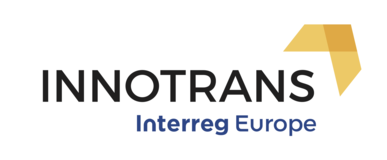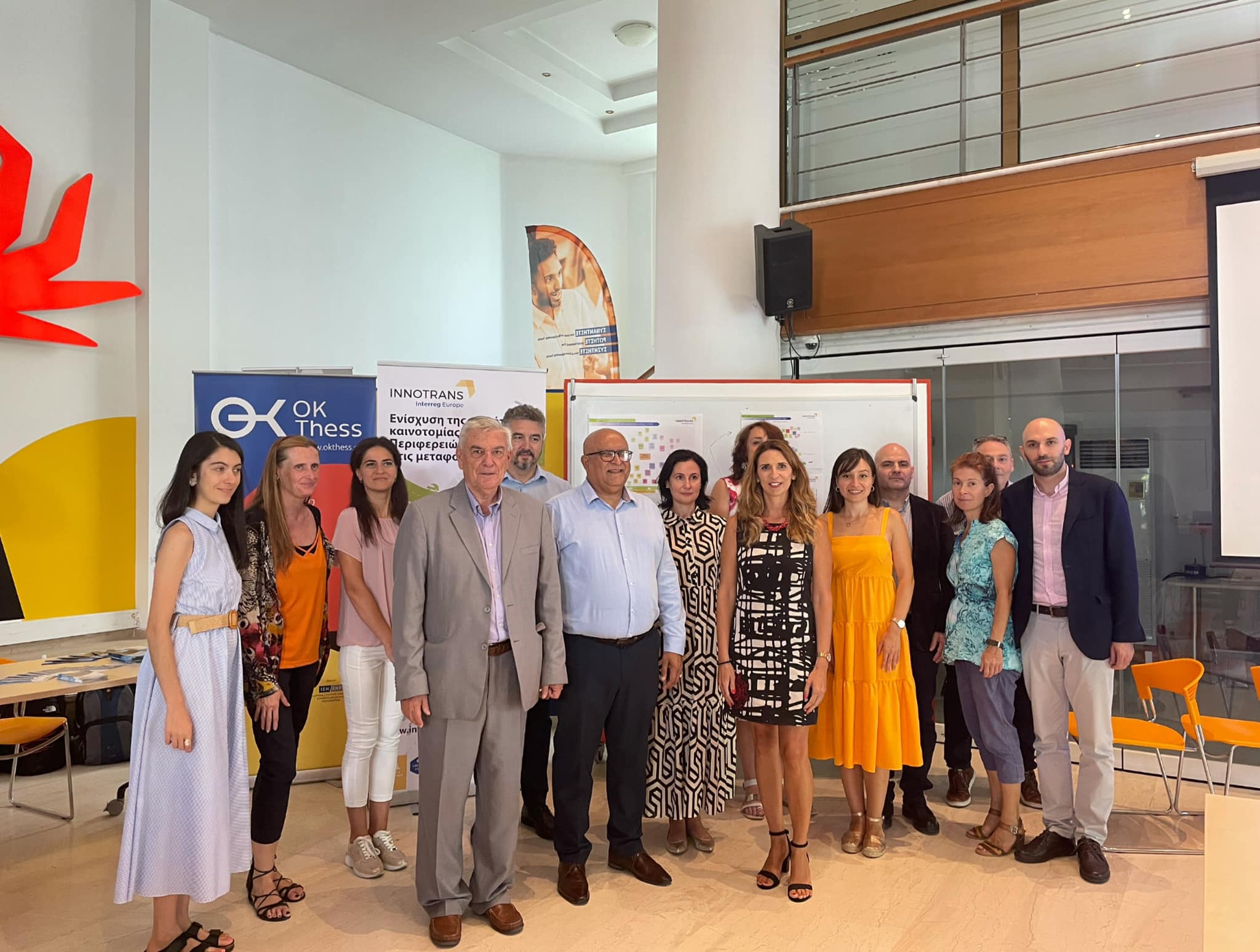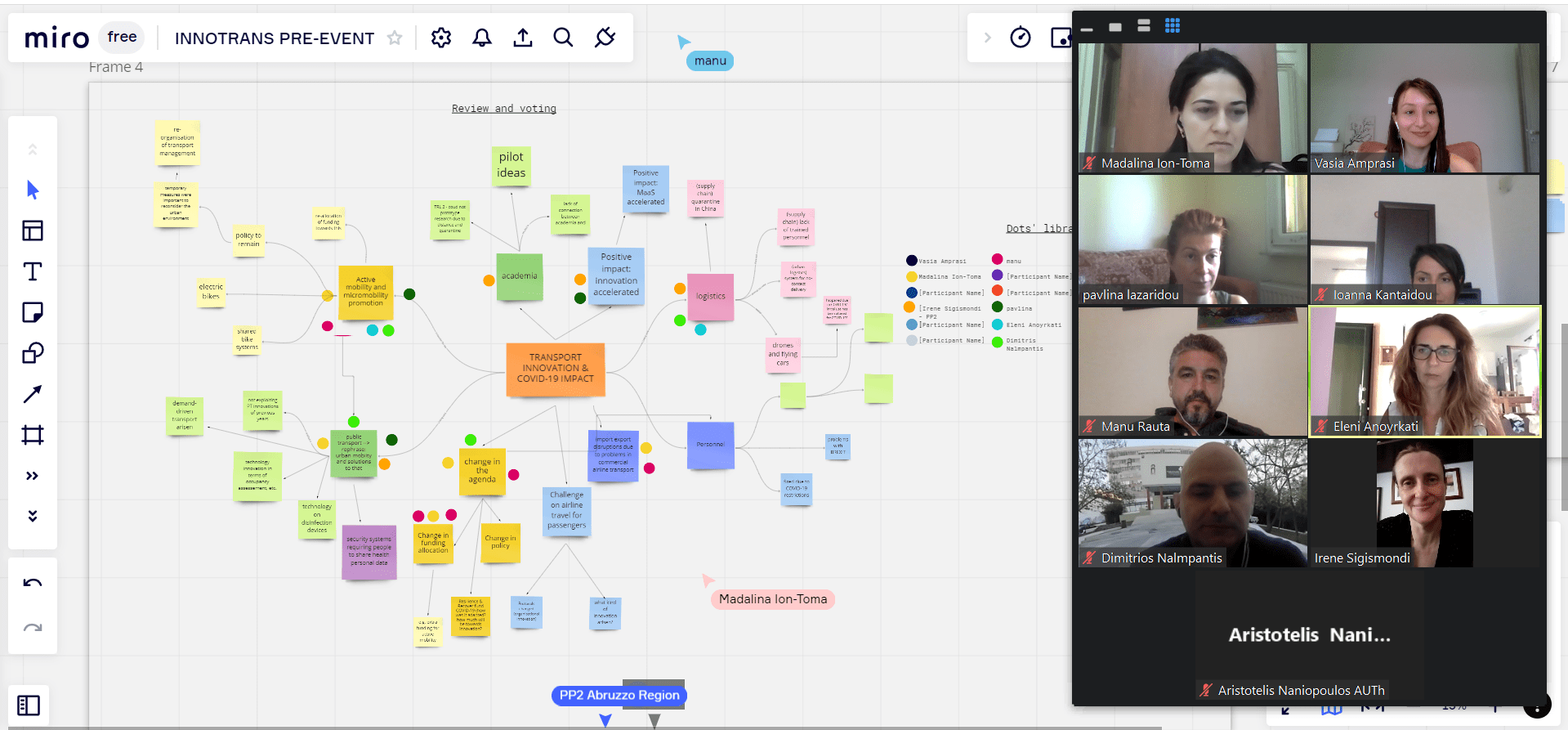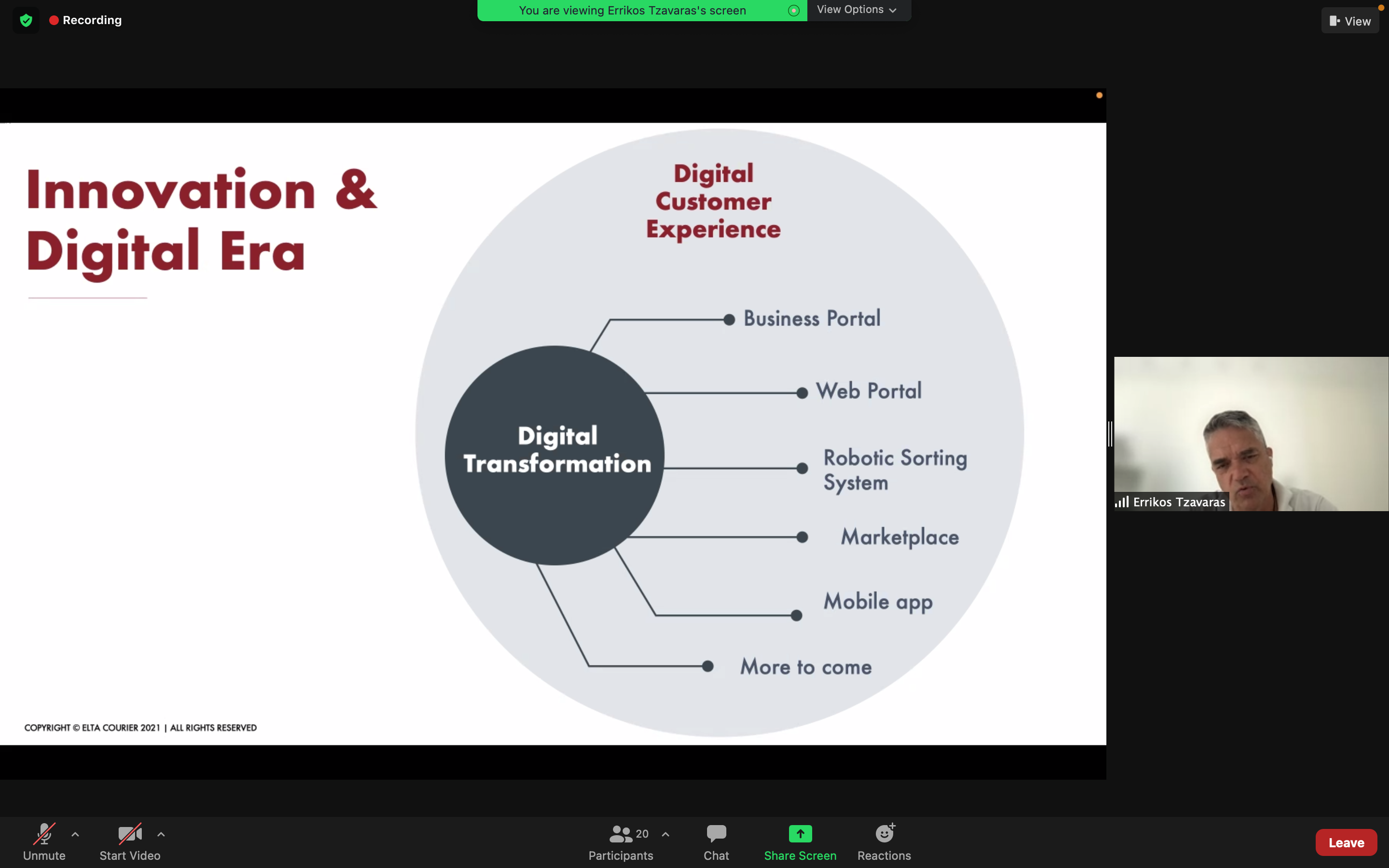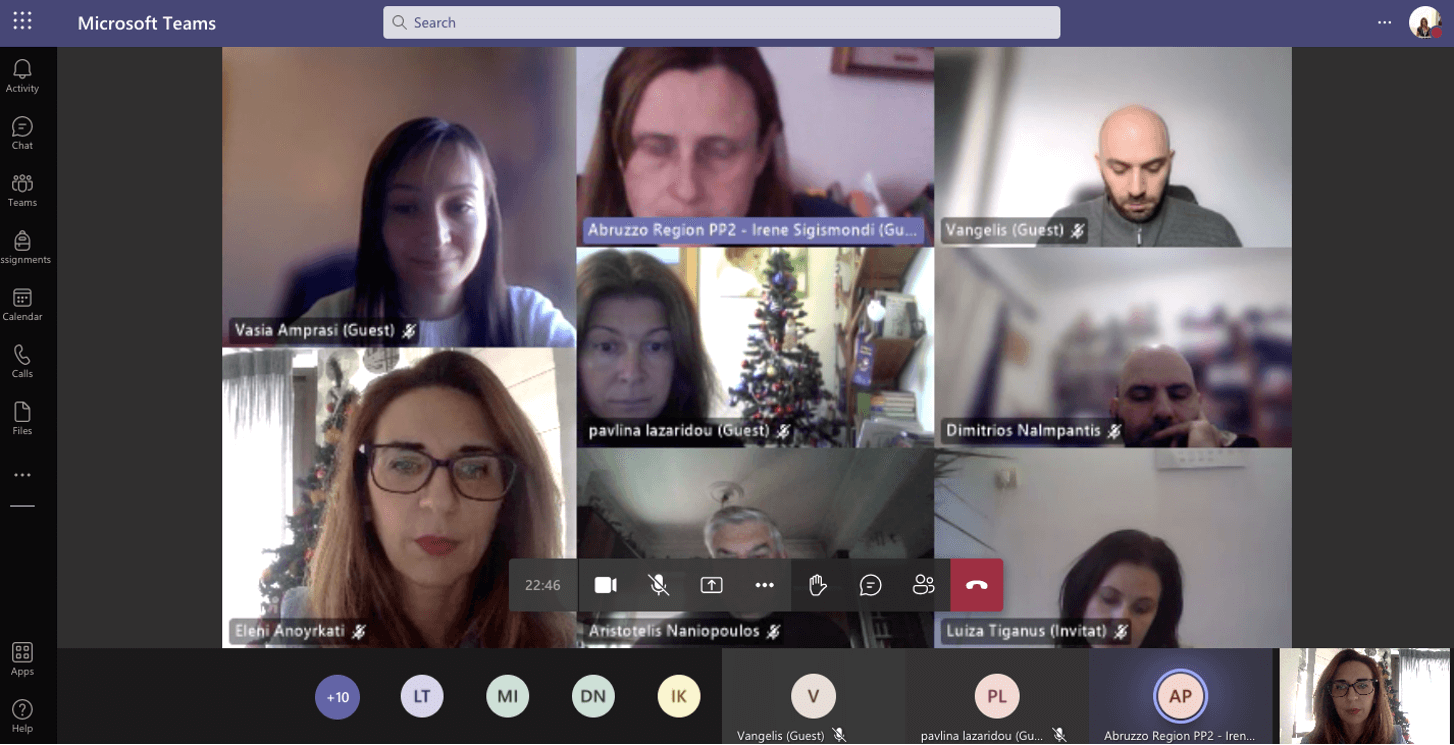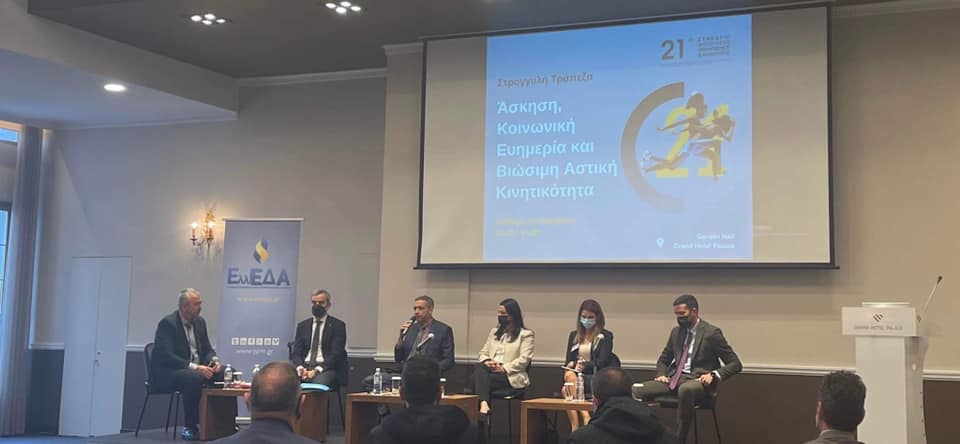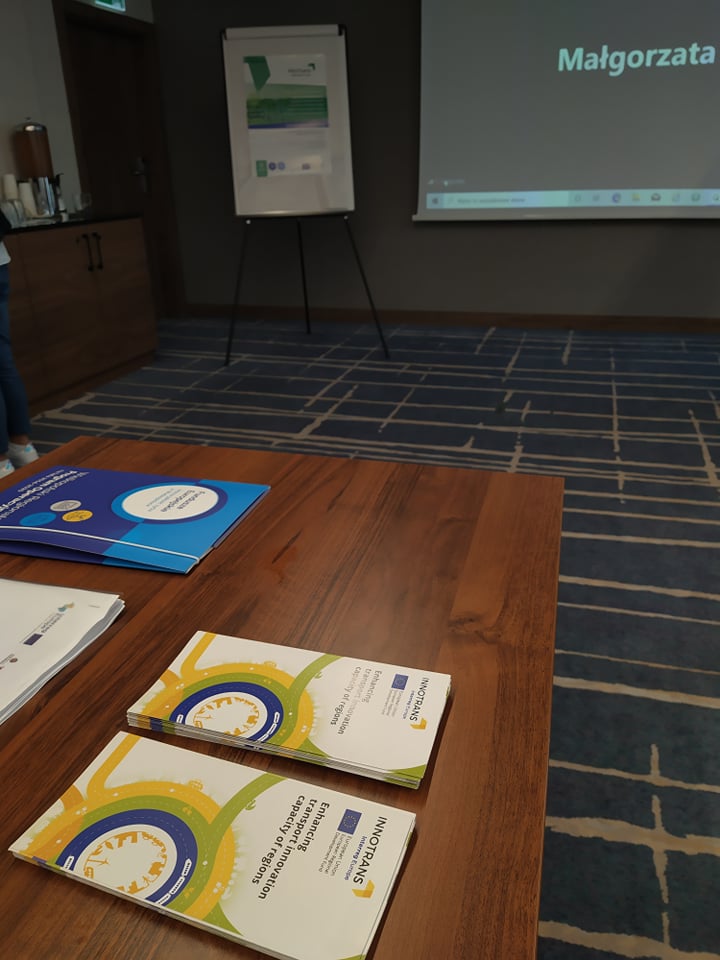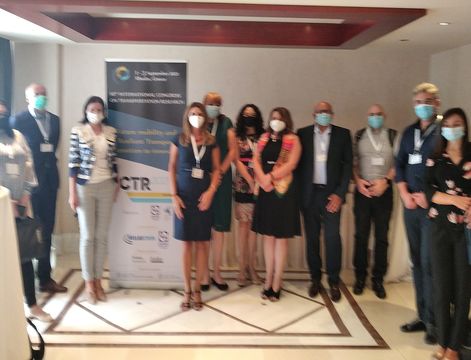The 1st INNOTRANS Stakeholders Meeting of the Region of Western Macedonia was held in the 7th of June, 2017 at the Headquarters of the Region in Kozani. The Region of Western Macedonia welcomed the representatives from the most important institutions of the Region such as the University of Western Macedonia, the Technical Institute (TEI) of Western Macedonia, the Centre for Research and Technology (CERTH), the Traffic Police of Kozani, the Managing Authority of the R.O.P. of Western Macedonia, the National Airports of Kozani and Kastoria, the Railway Association of Greece (OSE), the Hellenic Post (ELTA), the Egnatia Motorway S.A., the Public Power Corporation (PPC) S.A., the Regional Federation of Disabled of Western Macedonia and the Federation of Craftsmen Repair of Automobile Machinery And Motorbikes of Greece.
The Meeting started with a welcome speech by Dimitrios Mavromatidis, the Project Manager and all the participants introduced themselves and mentioned what is their relation to the transport sector. Paraskevi Christopoulou, the Financial and Communication Manager of the Project continued with a brief description of Interreg Europe. Dimitrios Mavromatidis presented the Region of Western Macedonia and what is expected from the INNOTRANS project, while Paraskevi Christopoulou presented the INNOTRANS project and the role of the stakeholders throughout the project’s duration.
During the round table discussion, there were several important issues discussed: the necessity of the right stakeholders’ involvement in the project, the practical results of the project and the possible necessity for the establishment of a Regional Transport Research Institute, the best practices from abroad regarding intermodal transport and innovation, the transport problems disabled people face in the region and the role of new and innovative technologies in this filed and the possible funding of innovative projects.

The stakeholders participated actively in the round table discussion asking very interesting questions regarding the project itself and the transport sector such as the definition of innovation and what is considered innovated in our region and in Europe in general, on what basis should the best practices be selected, how can the problem of transport isolation of our region can be confronted with the use of intermodal transport and why this problem remained all these years.
